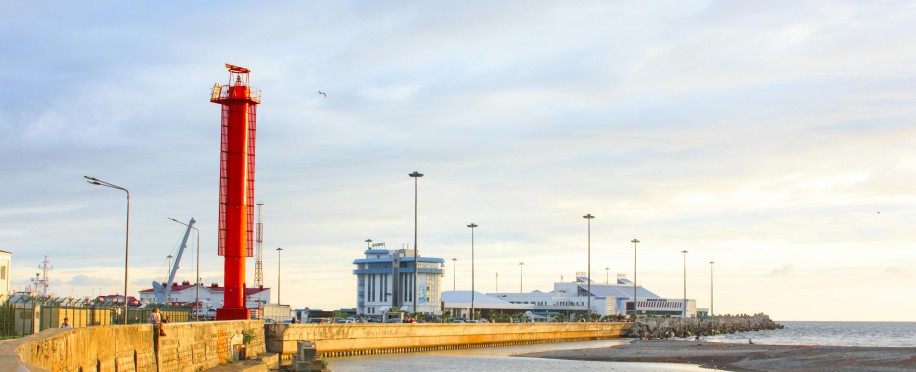Copyright © 2026 lmitac.com All Rights Reserved. Contact - Terms and Conditions - Privacy Policy - Quality Policy - Become an instructor - Vacancies - Sitemap
London Maritime Academy is a trade name for London Premier Groupversion: 2.9.0
London Maritime Academy is a trade name for London Premier Group

Posted on : 7/26/2025, 7:48:39 AM
Last Update : 7/26/2025, 7:48:39 AM
The General Average isn't just an old legal term in the maritime industry; it's key to understanding how stakeholders share losses when faced with dangers at sea. At the heart of any maritime adventure, there comes a crucial moment that requires sacrifice to save everyone. But let's face it—who bears the cost? And how are those affected compensated? In response, General Average acts as a legal and financial principle that saves ships and ensures fairness.
In this article, we'll take you on a journey through the profound principle of the general average and explore how this legal rule can transform emergencies into fair solutions for all stakeholders because understanding this principle will better equip you to protect your maritime interests, whether you're a shipowner, cargo owner, or marine insurer.
The general average is a principle of maritime law that essentially establishes that any exceptional sacrifice or expense voluntarily made to protect shared cargo and vessel interests in a maritime adventure must be proportionately shared among the parties involved. And of course, this concept has existed for centuries, established in the York-Antwerp Rules of 1890 and later updated in 2004 to accommodate developments in maritime practice.
In other words, if a ship's captain throws part of the cargo overboard to salvage the rest of the cargo and the ship, the incurred losses are shared among all stakeholders. This includes shipowners, shippers, and insurance companies.
The General Average covers intentional and extraordinary sacrifices or expenses that occur during the peril. Whether a vessel was forced to enter an emergency port and incurred additional costs, or containers were sunk to prevent the ship from capsizing, everything sacrificed must be compensated.
The General Average was applied in the 2021 grounding of the Ever Given, which became stuck in the Suez Canal. The General Average was introduced to cover expenses related to the salvage operation, a legal step established in maritime law.
Without a doubt, this principle is still studied extensively in maritime law courses in UK, as it is a fundamental concept that any maritime professional should be familiar with.

Naturally, the general average is declared when emergency conditions occur that threaten the ship, cargo, and crew, requiring urgent intervention. According to the Antwerp Rules, the following conditions must be met:
The decision is usually made by the master or owner of the ship, and is binding on all parties. After the incident, an Adjuster is appointed to determine whether the losses and costs meet the General Average.
For example, if a vessel is hit by a severe storm and is forced to dispose of some cargo or proceed to an alternative port and incurs additional charges, these expenses are counted toward the General Average, and the resulting costs are shared among all parties.
It is important to note that the General Average is not declared in any situation. Rather, it requires precise conditions, including that the risk be serious and imminent, and that the decision be made to save the entire voyage. Every owner or shipper is required to provide a financial guarantee, known as a general average guarantee, before receiving the cargo.
If the cargo is insured, the insurance company provides the guarantee or directly compensates the owner. If not, the owner bears the financial burden. This makes strong, comprehensive insurance an integral part of modern maritime transport.
In a rapidly changing world, the General Average is more important than ever. But this brings us to the real question — why does it still matter?
By distributing the burden among parties, the general average creates a spirit of cooperation and solidarity on every voyage.
Instead of one party bearing all losses, costs are shared proportionately, thus ensuring fairness and financial stability.
In emergencies, the captain can make intentional salvage decisions without worrying about legal and financial consequences.
The General Average helps provide an internationally recognized legal framework that eases disputes and builds trust across the maritime industry.
By ensuring compensation for intentionally relinquished property, General Average supports the continuity of shipping even in the most adverse circumstances.
Not only that, new concepts such as carbon levy are beginning to impact the costs associated with maritime transport, making a comprehensive understanding of general average essential for assessing burdens.
In an ocean world filled with risks and possibilities, General Average remains a vital safeguard—a legal and financial buffer that protects all parties who venture into the sea. Whether you're a shipowner, cargo stakeholder, or simply someone interested in global maritime trade, in the UK or elsewhere, understanding this principle ensures that everyone shares losses fairly and stands to benefit from a just and coordinated response when emergencies arise.